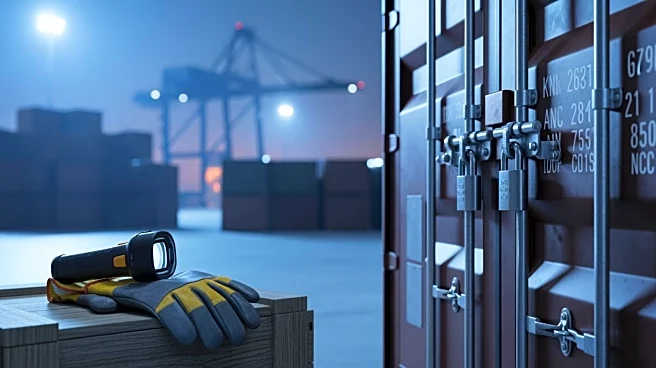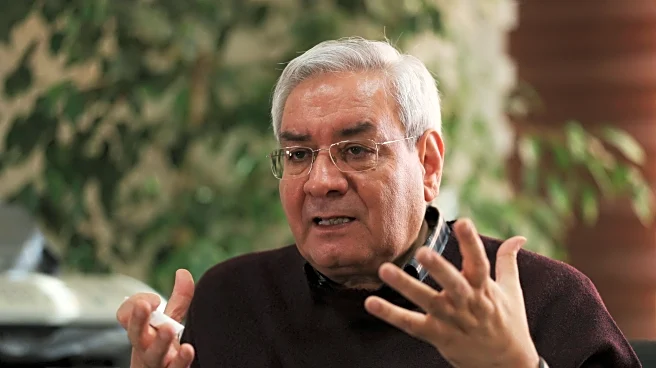What's Happening?
Romanian customs authorities have detained a Moldovan truck driver after discovering a large cache of military-grade weapons in his vehicle at the Moldova-Romania border. The shipment included Russian-made anti-aircraft missile systems, anti-tank rockets,
and components for drones. The driver claimed the cargo was destined for Israel, but Moldovan politicians suspect the weapons may have originated in Ukraine as part of a broader smuggling network. The truck, owned by a Moldovan company that trades in construction materials, was stopped at the Leușeni–Albița border crossing. An X-ray scan revealed military equipment instead of the declared 'metal elements.' The Moldovan transport company involved has denied knowledge of the cargo, suggesting documentation irregularities. Moldovan officials are calling for a joint investigation with Romania and Ukraine to determine the origins and intended destination of the weapons.
Why It's Important?
This incident highlights the ongoing concerns about arms smuggling in Eastern Europe, particularly involving weapons that may have been diverted from Ukraine. The presence of U.S.-made Stinger missiles raises questions about the security of military aid sent to Ukraine and its potential diversion to other regions. The situation underscores the need for enhanced border security and international cooperation to prevent illegal arms trafficking. The involvement of multiple countries in the investigation reflects the broader implications for regional security and the potential impact on diplomatic relations. The discovery of such a significant cache of weapons could lead to increased scrutiny of Moldova's role as a transit point for arms and the effectiveness of its customs controls.
What's Next?
Moldovan officials are seeking a joint intelligence investigation with Romania and Ukraine to trace the origins and intended destination of the intercepted weapons. Moldova's customs service has notified prosecutors to open a criminal case and will conduct an internal probe to assess potential corruption or security failures. The case is expected to draw attention from the European Union, given its implications for regional security. The Moldovan parliamentary national security committee may convene an urgent session to address the issue, and further diplomatic discussions between involved countries are likely as they seek to prevent future smuggling incidents.
Beyond the Headlines
The interception of military-grade weapons at the Moldova-Romania border raises ethical and legal questions about the proliferation of arms in conflict zones and their potential diversion to unintended destinations. The involvement of a small Moldovan company in the smuggling operation suggests vulnerabilities in corporate oversight and the need for stricter regulations on export documentation. The incident may prompt a reevaluation of international arms control agreements and the effectiveness of current measures to prevent illegal arms trade. Additionally, the case highlights the challenges faced by countries in maintaining border security amid geopolitical tensions and the ongoing conflict in Ukraine.















